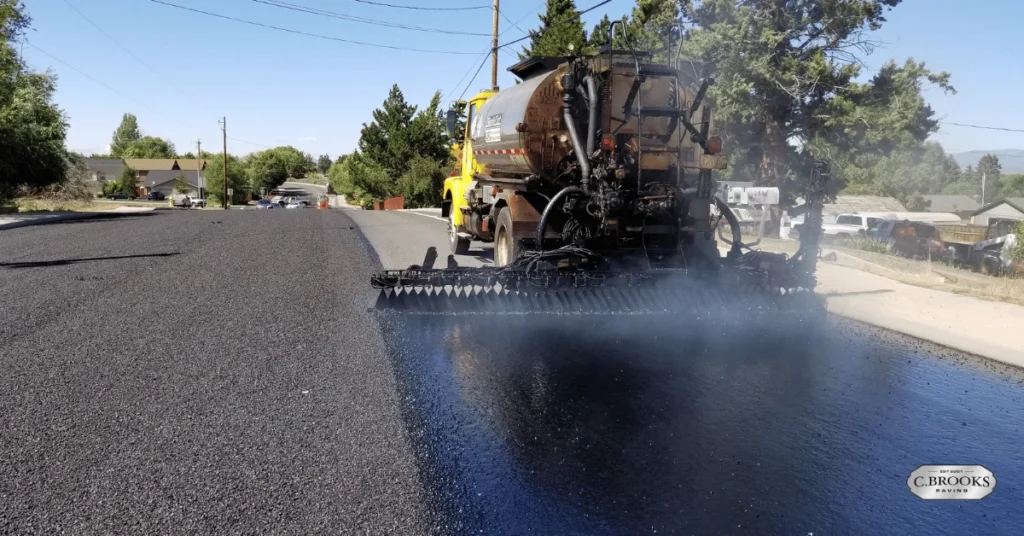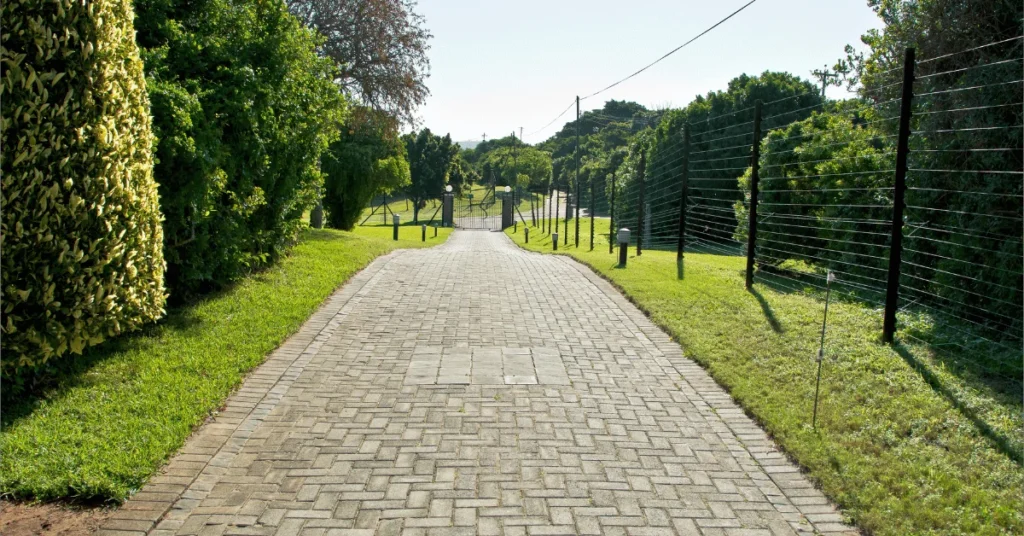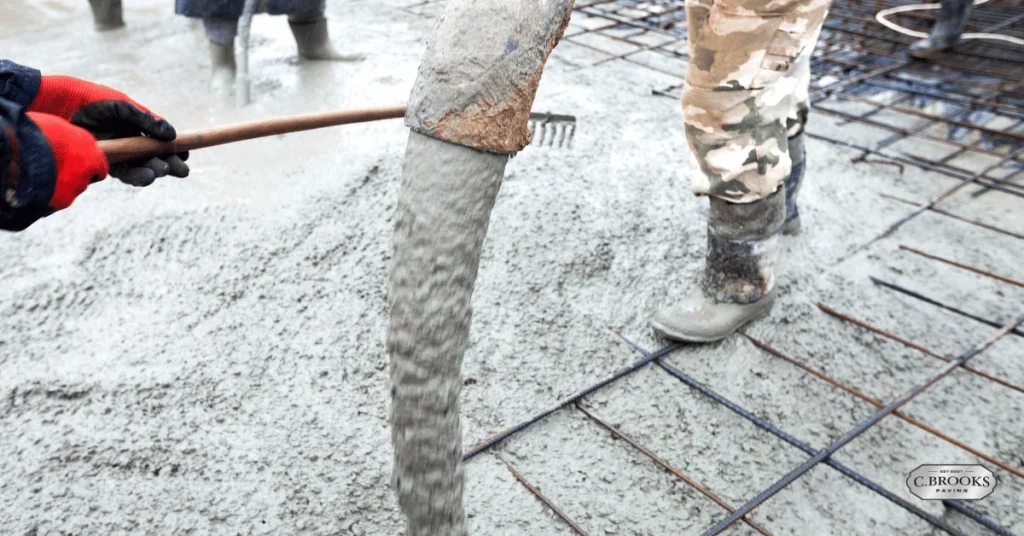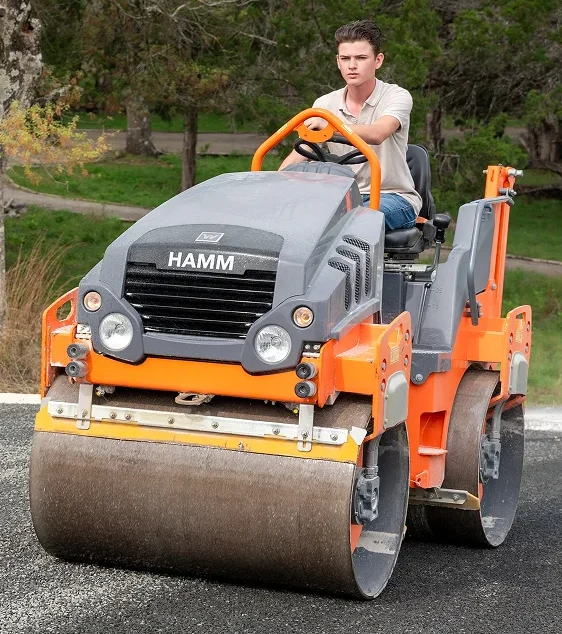Asphalt pavement doesn’t last forever. Whether you’re a homeowner in Bulverde or manage commercial property in South Texas, you’ve likely faced the tough decision of what to do with aging, cracked, or pothole-ridden pavement. Should you resurface the asphalt or tear it out and start fresh?
Asphalt Resurfacing vs Replacing Asphalt Pavement
At C. Brooks Paving, we’ve been helping Texans make this choice for four generations. This guide explains the difference between asphalt resurfacing and replacement, including cleaning, repair, and installation considerations so you can confidently choose the best path forward.
The Basics of Asphalt Pavement
Asphalt is a popular paving material for Texas roads, driveways, and parking lots due to its durability and cost-effective performance. It’s built to endure vehicles, foot traffic, and changing weather conditions, but even the best asphalt pavement eventually breaks down.
Over time, a combination of heat, rain, and wear causes cracks, fading, potholes, and drainage issues. Without proper asphalt maintenance, minor problems can lead to extensive damage and even base layer failure.
What Is Asphalt Resurfacing?
Asphalt resurfacing, also known as an overlay, involves applying a new layer of asphalt usually 1.5 to 2 inches thick over the existing pavement. This process works best when the surface is worn, but the base is still in good condition.
The asphalt resurfacing process starts with cleaning the surface, followed by crack filling, minor repair, and laying down hot asphalt. It does not require removing the entire surface, making it a cost-effective choice for many property owners.
When Should You Resurface?
- Surface-level cracks and minor potholes
- Asphalt is 10–15 years old but the base layer remains solid
- Cosmetic fading or minor weathering
- You want to extend the life of your pavement without major costs
Pros of Resurfacing
- Lower cost than full replacement
- Quick installation, often done in 1–2 days
- Can extend the lifespan by 8–15 years
- Improves curb appeal without disrupting the entire pavement
Cons of Resurfacing
- Doesn’t address deep cracks or base damage
- Depends heavily on the existing surface
- May raise the height of the pavement, affecting drainage or curbs

What Is Asphalt Replacement?
Asphalt replacement involves removing and replacing the existing asphalt pavement and foundation. This is ideal for severe damage, drainage problems, and structural failures in both the surface and sub-base.
This method typically includes asphalt removal, fixing sub-base issues, compacting the foundation, and installation of new asphalt. It’s a long-term investment for properties with heavily deteriorated surfaces.
When Is Full Replacement Necessary?
- Widespread alligator cracking
- Large potholes, failed asphalt, or crumbling edges
- Driveway or lot is over 20 years old
- Noticeable shifting, flexing, or drainage failure
Pros of Replacement
- Addresses all structural damage
- Provides a smooth, long-lasting asphalt surface
- Includes asphalt patching, compact sub-base, and new surface
Cons of Replacement
- Higher upfront cost
- Longer downtime, especially for commercial asphalt lots
- More labor-intensive asphalt installation
How to Decide: Resurface or Replace?
Choosing between resurfacing and replacing comes down to your budget, surface condition, and long-term goals. Here’s how to evaluate:
1. Current Condition of Your Pavement
- Minor cracks and cosmetic wear? Choose resurfacing.
- Deep cracks, movement, or structural failure? Go for replacement.
2. Age of the Asphalt
- Under 15 years? Resurfacing may work well.
- Over 20 years? Consider replacing the entire surface.
3. Budget Considerations
- Resurfacing is a more cost-effective option, but may require repeat work.
- Replacement costs more but reduces future repair frequency.
4. Intended Use
- For homes and light traffic, resurfacing may be sufficient.
- For driveways with heavy vehicles or parking lots, asphalt replacement ensures better longevity.

Key Warning Signs: Don’t Ignore These
If you’re not sure when to act, check for these issues:
Surface Damage
- Discoloration or fading
- Spiderweb-like cracks
- Small potholes
Structural Damage
- Large cracks and crumbling
- Pooling water or poor drainage
- Sections that shift under weight
Professional inspection is advised if you’re unsure whether to resurface or replace.
Cost Comparison: Resurfacing vs. Replacing Asphalt
| Service | Avg. Cost/Sq. Ft. | Lifespan |
| Asphalt Resurfacing | $1.50 – $3.50 | 8–15 years |
| Asphalt Replacement | $4.00 – $8.00 | 20–30 years |
Keep in mind: Multiple resurfacing asphalt jobs over failing existing asphalt can add up and still lead to a complete replacement down the line.
Local Projects: Examples in South Texas
Residential Driveway Resurfacing – Bulverde
A homeowner contacted us about a faded asphalt driveway with small cracks. We completed crack filling, resurfacing, and sealcoating. The result? A fresh, durable top layer of asphalt and improved drainage.
Ranch Road Replacement – Hill Country
This road had extensive damage, potholes, and drainage problems. We performed a full replacement, including removing the entire section of failed asphalt, compacting the new foundation and asphalt layer, and installing fresh asphalt paving.
Best Practices from C. Brooks Paving
- Perform regular asphalt maintenance and sealcoating
- Address cracks early with asphalt repair or asphalt patching
- Ensure proper drainage to extend the life of the pavement
- Consider repaving or resurfacing asphalt before damage worsens
- Consult pavement professionals before deciding

Final Thoughts: Choosing the Best Option
Deciding between asphalt resurfacing vs. full replacement depends on your surface’s current condition, usage, and budget. Resurfacing is a great short-term solution if the base is stable. But replacing the entire asphalt surface is better when asphalt shows severe or widespread failure.
Whether you choose to resurface or replace, asphalt provides a new, safe, and clean look when properly installed and maintained. For tailored asphalt solutions, trust the experienced team at C. Brooks Paving.





